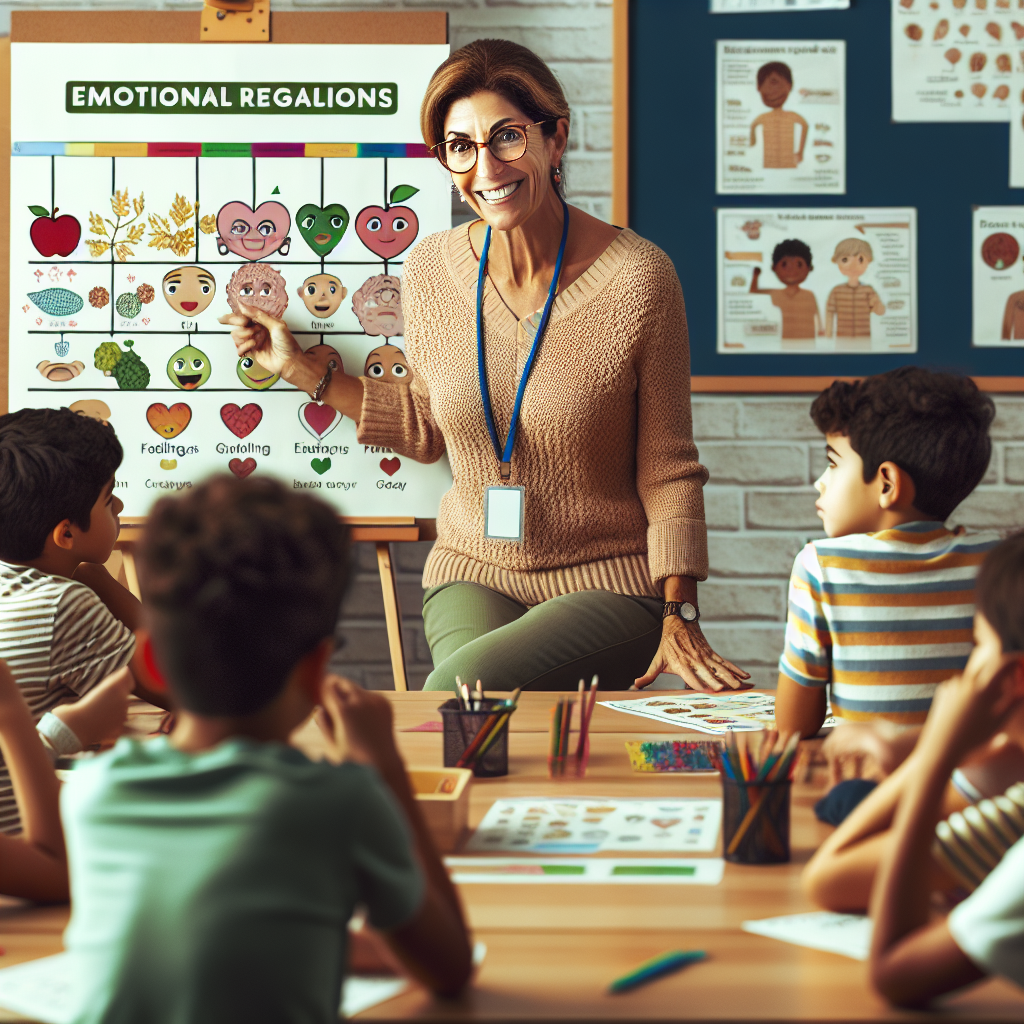Children are not always equipped with the necessary skills to regulate their emotions effectively. This can lead to outbursts, tantrums, and difficulties in social situations. Teaching children emotional regulation skills is vital in helping them navigate their feelings and behaviors in a healthy way. In this article, we will discuss some strategies for teaching children emotional regulation skills, as well as an FAQ section to address common concerns.
1. Teach them to recognize their emotions: The first step in teaching children emotional regulation skills is helping them identify and name their emotions. This can be done through games, stories, and activities that help children understand the different emotions they may experience. By giving a name to their feelings, children can better understand what is happening inside of them and learn to express themselves in a healthy way.
2. Help them understand the connection between thoughts, feelings, and behaviors: Children often struggle to understand the connection between their thoughts, feelings, and behaviors. By teaching children that their thoughts influence their emotions, which in turn influence their behaviors, they can begin to recognize patterns and better regulate their reactions. This can be done through role-playing, storytelling, and guided discussions.
3. Practice mindfulness and relaxation techniques: Mindfulness and relaxation techniques are important tools for helping children regulate their emotions. Teaching children how to stay present in the moment, focus on their breathing, and engage in relaxation exercises can help them calm down when they are feeling overwhelmed. These skills can be practiced through mindfulness activities, yoga, meditation, and deep breathing exercises.
4. Encourage problem-solving and conflict resolution skills: Teaching children how to problem-solve and resolve conflicts in a healthy way is essential for emotional regulation. By encouraging children to think through solutions, communicate their needs effectively, and compromise when necessary, they can learn to manage their emotions in challenging situations. Role-playing, social stories, and peer mediation can be effective tools for teaching these skills.
5. Set clear expectations and boundaries: Children thrive on structure and routine, so setting clear expectations and boundaries is key to helping them regulate their emotions. By establishing rules and consequences, children know what is expected of them and can better manage their behavior. Consistency and positive reinforcement are important in enforcing these boundaries and helping children understand the connection between their actions and consequences.
FAQs:
Q: How can I help my child calm down when they are upset?
A: Encourage your child to take deep breaths, count to ten, or engage in a favorite calming activity like drawing or listening to music. Validate their feelings and offer support and comfort.
Q: My child has frequent meltdowns. What can I do to help them manage their emotions better?
A: Try to identify triggers for the meltdowns and work with your child to develop coping strategies. Encourage them to communicate their feelings, practice relaxation techniques, and seek professional help if needed.
Q: Is it normal for children to struggle with emotional regulation?
A: Yes, it is normal for children to struggle with emotional regulation, especially during times of stress or change. With patience and consistent support, children can learn to better manage their emotions over time.
In conclusion, teaching children emotional regulation skills is essential for their emotional well-being and social development. By helping children recognize their emotions, understand the connection between thoughts, feelings, and behaviors, practice mindfulness and relaxation techniques, encourage problem-solving and conflict resolution skills, and set clear expectations and boundaries, we can empower children to navigate their emotions in a healthy way. With time, patience, and support, children can learn to regulate their emotions and thrive in all areas of their lives.





Leave A Comment